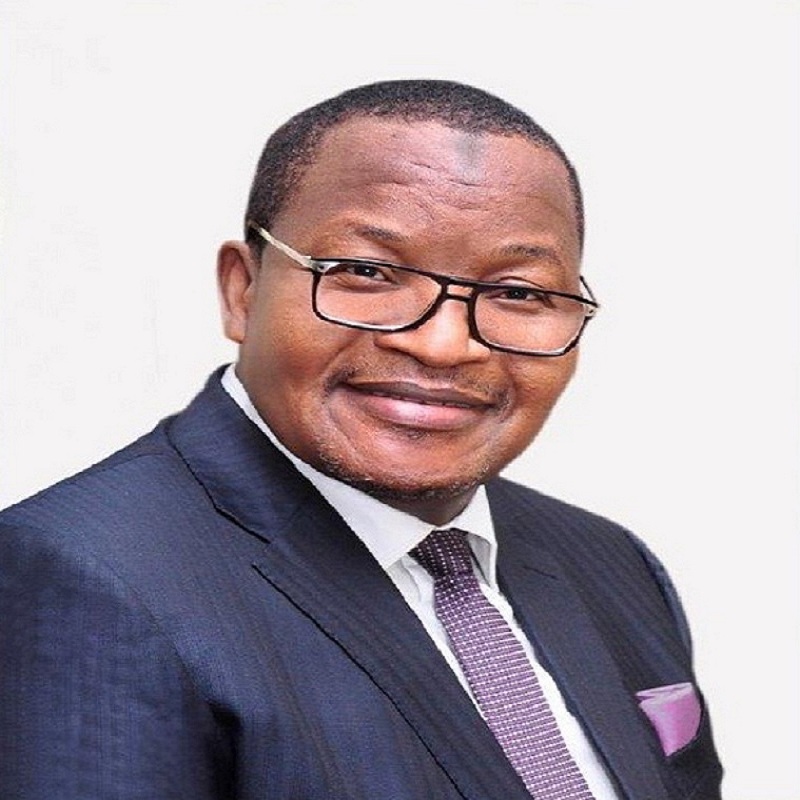The Nigerian Communications Commission (NCC) has said that it is aware of the critical need to harness the contributions of all critical Stakeholders across all industry platforms and professional groups to ensure that Nigerians fully participates in the Fourth Industrial Revolution as drivers and innovators.
Speaking on Thursday at the Virtual 3rd Discourse Series of The Advocaat Law Practice, Executive Vice Chairman of the NCC, Prof. Umar Garba Danbatta said Nigeria can only harness the opportunities of the 4th Industrial Revolution as a nation if the country puts in place effective guiding frameworks, to address the various aspects of the digital ecosystem and ensure their effective interworking in the national interest.
Represented at the event by the NCC Executive Commissioner, Stakeholder Management, Barr. Adeleke Adewolu, Danbatta noted that Nigeria is not lacking in key Policy and Regulatory frameworks and instruments which will enable her to play a leading role in powering the 4th Industrial Revolution.
He cited as an example, the National Digital Economy Policy and Strategy Policy (2020-2030) which boasts of eight pillars designed to, amongst other things, enable Nigeria to become a leading player in the global digital economy; Provide a catalyst to facilitate the diversification of the economy; and Accelerate the attainment of the key national objectives of improving security, reducing corruption and expanding the economy.
“Similarly, the Nigerian National Broadband Policy (2020-2024) clearly highlights the various implementation strategies that would aid the pervasive inclusion and rollout of broadband services across the country whilst also developing a robust and holistic digital economy.
“The NCC’s Strategic Management Plan (SMP 2020-2024 or “ASPIRE 2024”) consolidated on the vision we earlier articulated in the Strategic Vision Plan and 8-Point Agenda. We have responded to the policy goals highlighted above to harness the immense socio-economic benefits of ICT for national development,” Danbatta said.
He also added that it includes: “To ensure that ICT infrastructure is up to the standard necessary to provide ubiquitous broadband services in Nigeria; and to align the Commission’s regulatory efforts with the aforementioned Policy Instruments, as well as the growth strategies of the International Telecommunications Union (ITU) to ensure Growth, Inclusiveness, and Sustainability.”
Danbatta noted that Nigeria has recorded a number of significant achievements in this regard including the licensing of six (6) infrastructure companies (InfraCos) speed up the deployment of broadband infrastructure throughout Nigeria; The provision of training and supporting public institutions with ICT interventions like School Knowledge Centers, ADAPTI etc.
Furthermore, there is the enhancement of physical infrastructure as has manifested in the last five (5) years, where the Commission has expanded broadband penetration from 6% to 42.06 as of February 2021; access gap clusters have been reduced from 207 to 114; Fibre Optic coverage has increased from 47,000km to 54,725 km and Base Transceiver Stations for 3G and 4G deployments have increased from 30,000 to 53,460.
According to Danbatta, “The creation of a full-fledged department Digital Economy has been created to support Federal Government’s Digital Economy agenda. We also increased funding of Telecom Research to N336.4m and have endowed four (4) Professorial Chairs.
“We have also commenced requisite engagements on 5G deployments and some of our licensees have already carried out trials.
“These strides will enable the telecommunications sector to provide the infrastructure backbone for powering the Fourth Industrial Revolution in Nigeria. We are firmly committed to ensuring that Nigerians in Nigeria play a leading role in Artificial Intelligence, Cloud Computing, Internet of Things (IoT), Robotics, Blockchain, Autonomous Vehicle, Drones and other innovative technologies which are now driving growth and national competitiveness.
“The question of regulation of disruptive technologies without stultifying innovation is one that we, like all other regulators globally, are carefully studying. For now, we have maintained a sharp focus on critical cross-cutting aspects like consumer protection, enhancement of competition, data protection and enhancement of trust in digital platforms through the prevention of cybercrimes and other abuses.”
The NCC EVC used the opportunity provided by the virtual event to seek the support of all stakeholders on the issue of citizens’ identification and digital identity considered critical to the country’s digital emergence and its future growth.

He noted that the NCC has achieved very significant success in the articulation of a template for the activation of new SIMs linked with authenticated NINs, and assured that the activation of new SIMs will now be carried out across the country in earnest.
“This development further underscores the government’s commitment to ensure that all the pre-requisites for our citizens’ full, effective and productive participation in the digital economy is guaranteed. I call on all stakeholders to support these efforts in the overall national interest for a robust citizens’ database that supports socio-economic, health, education, national security and other public interest aspirations of the country,” he said.
The NCC boss stated that “Nigeria can only maximize the potentials of the 4th Industrial Revolution if it articulates effective and forward-looking Policy Instruments to guide the country’s emergence into the future digital landscape.
“Ensure the ubiquitous presence, the seamless operation and the cost-effective availability of communications infrastructure which will power the digital aspirations of all sectors of the Nigerian economy and ensure that national competitiveness is guaranteed.
“Deploy effective regulatory instruments and harness the efforts of all critical Stakeholders so that we can derive the utmost benefits from the 4th Industrial revolution and not be reduced to digital laggards, spectators, or, merely a consumptive class.”

